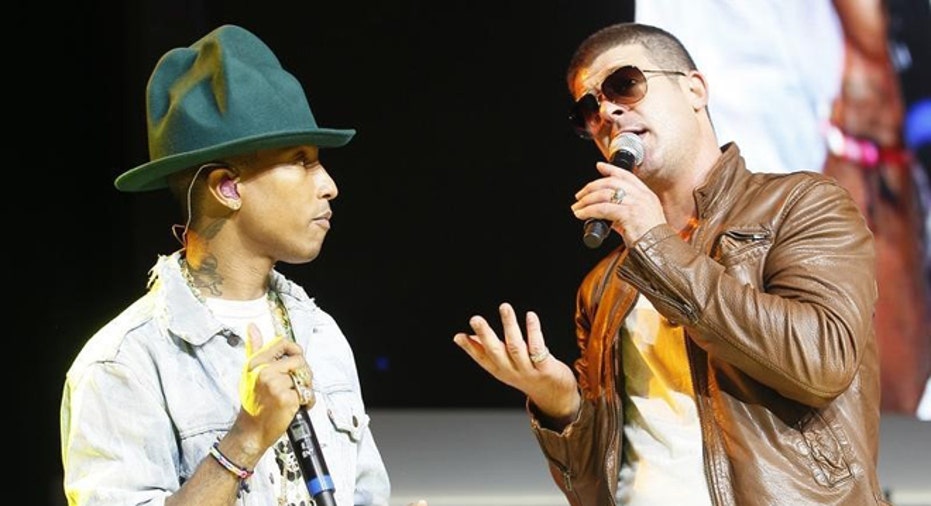'Blurred Lines' Duo Found Liable for Plagiarizing Marvin Gaye

Heirs of the late soul singer Marvin Gaye won a $7.4 million judgment on Tuesday against recording stars Robin Thicke and Pharrell Williams, who a jury found plagiarized the Motown artist in the creation of their hit single "Blurred Lines."
The U.S. District Court jury in Los Angeles sided with Gaye's estate in the closely watched litigation, finding that parts of his 1977 hit "Got to Give it Up" were lifted by Thicke and Williams for their summer 2013 R&B chart-topper.
The jury awarded Gaye's heirs $4 million in actual damages plus $3.4 million in profits that Thicke and Williams were found to have derived from their copyright infringement of "Got to Give it Up."
Several other parties sued by Gaye's estate, the rapper T.I. and various record and music companies, were cleared of copyright infringement on "Got to Give it Up."
Gaye's daughter, Nona Gaye, hugged her attorney and wept as the court clerk read the verdict capping a weeklong trial that delved into the boundaries between artistic inspiration and copyright infringement.
The suit by Gaye's children cited excerpts of magazine interviews given by Thicke to support their contention he had publicly admitted to drawing on "Got to Give it Up" when producing and recording "Blurred Lines."
But Thicke said later in sworn statements he was high on painkillers and alcohol when "Blurred Lines" became a hit and that he exaggerated his contribution to writing the song.
Thicke sang the raunchy, percussive R&B dance tune, a worldwide hit that ranked as the biggest U.S. pop song of the summer of 2013, at that year's MTV Video Music Awards in a provocative performance featuring pop singer Miley Cyrus.
Williams, the producer behind the song, acknowledged in court that he had been a fan of Gaye's music since childhood, but said under oath that "Blurred Lines" and "Got to Give it Up" were similar in terms of genre only.
"The last thing you want to do as a creator is take something of someone else's when you love him," Williams testified.
(Reporting by Michael Fleeman; Writing by Steve Gorman; Editing by Cynthia Johnston and Peter Cooney)



















